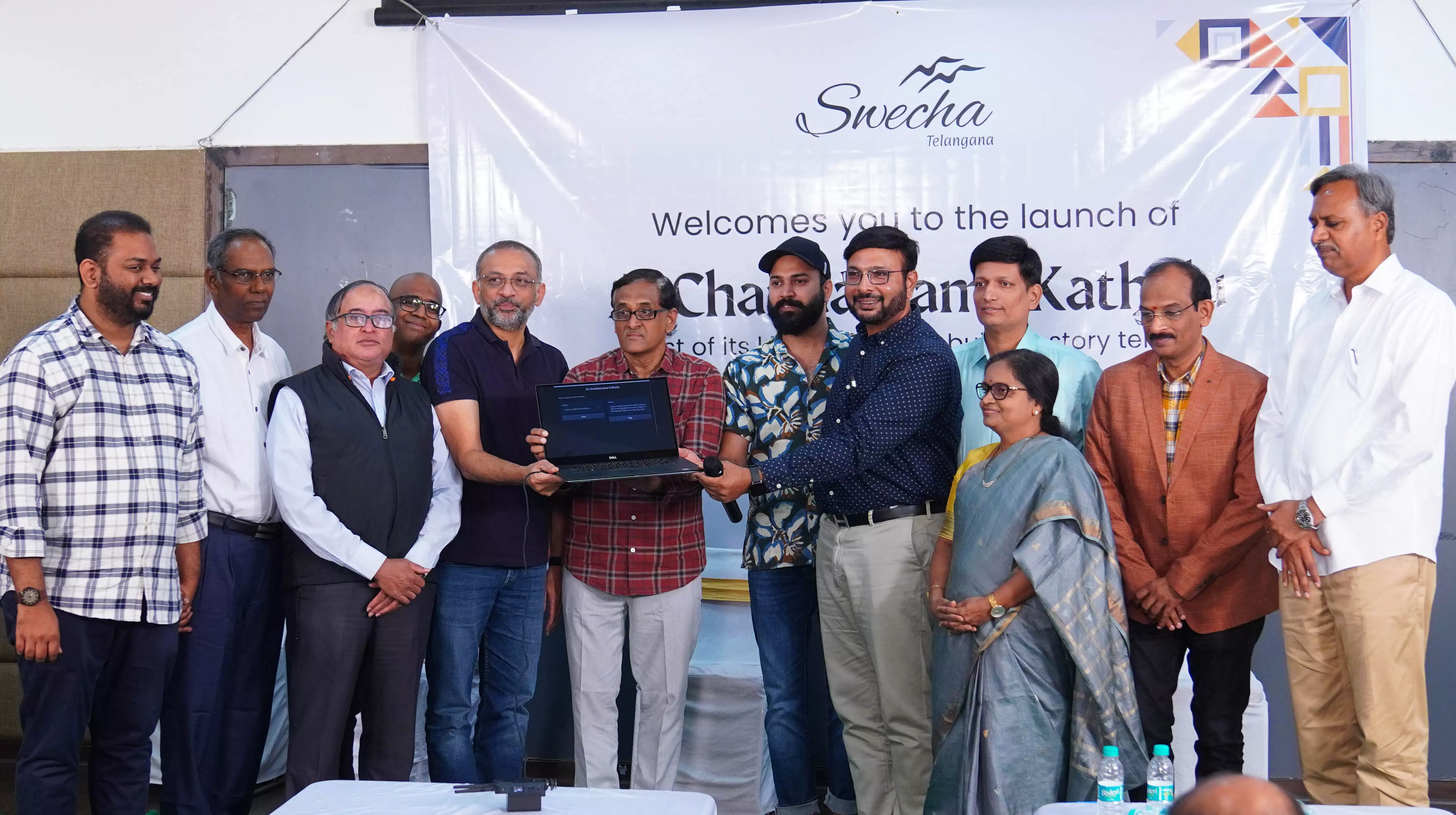AI Chandamama Kathalu: Hyderabad’s Swecha reimagines Indian folklore with Artificial Intelligence
Swecha’s goal behind building the application is to bring back the moral and ethical values embedded in Chandamama Kathalu
By Newsmeter Network
Hyderabad: Swecha released ‘AI Chandamama Kathalu’, the first-of-its-kind AI (Artificial Intelligence) storytelling application.
Swecha’s goal behind building the application is to bring back the moral and ethical values embedded in Chandamama Kathalu creatively blending the latest technological advancements. Thousands took part in this initiative, to contribute their time and effort, charting a path towards a Telugu AI. The core focus is to create a truly open AI ecosystem that serves the needs of India.
Among many prominent personalities of the tech industry and technological wing of the Telangana government, Shobu Yarlagadda, the founder of Arka Media Works, attended the public launch as the chief guest.
“We are seeing the growth of AI, especially, that of Large Language Models (LLMs), such as the ChatGPT. These LLMs are trained on large amounts (trillions of words) of raw text, typically, scraped from the web. Consequently, they end up requiring an immense amount of computing power and special hardware (GPUs) to learn patterns, so that they can produce coherent text. For instance, it takes nearly Rs six crores (700,000 dollars), just to run ChatGPT daily,” said the makers.
Need to make AI accessible across languages
The idea of creating an AI based on Indian languages is to make knowledge accessible to everyone including urban and rural sections of farmers and shopkeepers and most importantly teachers.
Discussions about such an AI, brainstormed by Chaitanya (CPO and co-founder of Ozonetel), Kiran Chandra (founder of Swecha) and Professor Gaurav Raina (IIT Madras) over a breakfast, led to the development of an AI solution for stories. Their story-oriented AI language model did not need an LLM, which is very resource-intensive, and a small language model (SLM) was adequate.
Since the AI model was built with storytelling at its core, Chandamama Kathalu was chosen as the source of data. These short stories, with their pan-Indian appeal, especially among the Telugu states, were the perfect choice for instilling values among children and adults, in line with the changes in consumption of content in the age of AI.
10,000 engineering students helped digitise content
The stories, available in scanned PDFs, had to be digitised first. More than 10,000 students and faculty across 30 engineering colleges helped proofread the digitally scanned and converted Telugu text from the old magazines.
A total of 40,000 stories were converted as a result of the massive participation. This dataset has been released for the public and is available on the Internet for anyone to download and/or improve upon.
The digitising part of the effort was led by Kiran Chandra, who looking back at his earlier efforts, said “This whole effort reminds me of the effort we put 20 years ago in creating the first Telugu Operating System, creating the font and the glossary. This seems a logical step in our journey towards democratising technology and we shall continue to take up more work in this space.”
AI can create more stories
Once the data was collected, the next step was to train the AI model on these stories, so that it could then create new stories.
Chaitanya led this effort and after a month of effort, the project is now launched to the public. While stressing that ‘this is only the beginning’ he said that the team has ambitious plans for Telugu AI models.
“The success of the Chandamama Kathalu datathon proved that a volunteer-driven effort for creating high-quality datasets is possible,” said Chaitanya. These datasets, being open, can now ignite research in universities and startups. “So, we have a flywheel for AI for India,” he added.
“Professor Gaurav Raina encouraged us to build this into something far bigger; into an Indian AI-based language model, which can cater for stories of India, across all Indian languages,” he said.
Professor Gaurav Raina, commenting on the opportunity, said, “Storytelling is central to our beliefs, and our values, and while it’s great to start with Telugu, the team has to help tell the stories across all Indian languages.”